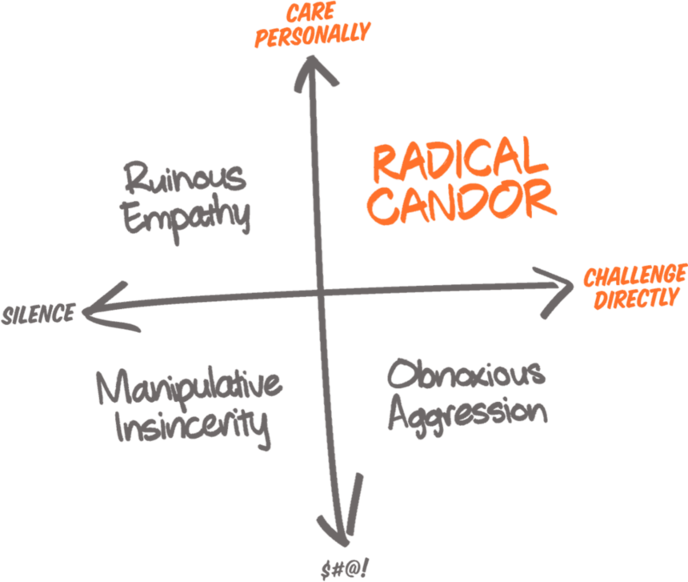Challenge Your Team, With Deep Care
Sun, Sep 22, 2019Over the last years, I have come to read and reflect more and more on some aspects of great teamwork. There is now quite a corpus of litterature discussing what makes high performing teams.
Feeling safe
When I tweeted a few days ago:
took me literally years to discover and understand why sane conflict in a team is not only good, but even required.
Care and Challenge.
Getting to know a bit more what you don’t know is progress right?
I must say I love this.
I got off-the-band feedback talking about a case at a well-known company where a person on a leadership role would challenge a lot teams to do bolder moves, think more strategically etc. People felt attacked, and even threatened.
To be clear, I am not arguing that this behavior is desired. I am actually saying this behavior is the exact opposite.
Challenge is needed, for sure. But it cannot come before trust is established, or worse things will happen.
One critical finding was discussed in Duhigg’s Smarter, Better, Faster [1]: the People team at Google was trying to find out what were the criteria for high performing teams. After shaking data, they found that the one criterion that was shared among all these teams were the so-called psychological safety.
being able to show and employ one’s self without fear of negative consequences of self-image, status or career
Or, as written in Smarter, Better, Faster:
is a shared belief, held my members of a team, that the group is a safe place for taking risks.
[…] sense of confidence that that team will not embarass, reject, or punish someone for speaking up
In other words, you know you can make mistakes, and that it will generally not threaten your job.
And while so many crappy companies or crappy managers still stupidly punish mistakes, we all know very well what happens: people will not stop making mistakes, they will hide them. And everybody ends up suffering: people and the business. What for then, FFS?
Safe, and sane emulation
Mistakes. Mistakes, and taking risks. Together.

Another famous book discusses the importance of challenging your teammates: Radical Candor. The framework is impressively simple and powerful to understand why caring and challenging are so critical. The book is literally stuffed with insightful, and often funny, anecdotes illustrating many points.
Kim Scott spends in particular a good amount of pages discussing the case of ruinous empathy, deemed as the most common mistake when working together. Basically you are nice with someone, very nice. You want to be nice, and to not hurt people, so you do not tell them what is going wrong. And if or when things go bad, people get mad at each other because of unvoiced problems, or worse people end up fired. [2]
Develop relationships
This is where the crux actually lies. To be able to challenge, there must be a strong relationship. Challenging someone is hard.
Imagine a long-time friend comes and tells you:
Hey, I think you made a big mistake there on XYZ
Likely, you’d be genuinely interested to hear what you did bad.
Now, picture yourself in a similar situation, but with someone you’ve only been working remotely with for one month, and never met in real life. That person you only saw roughly once per working day during daily standup calls and various team rituals with the full team.
Which one is more likely to trigger a immediate bad reaction? Which one is at least going to shift your mindset to a defensive mode instead of a learning one?
This all comes down to trust. This all comes down to knowing that showing your weaknesses won’t be held against you. And to build trust, one has to work on relationships.
And if you want data to back this discussion, building trust inside and across team is also recommended in Accelerate [3].
Conclusion
Care deeply about your coworkers, and challenge them.
I would even say: really caring about your teammates implies you will make the effort to challenge them. They will trust you because they know it is not to hurt them, but quite the contrary. People will know you expect them to do the same. [4] And overall, the team will grow together.